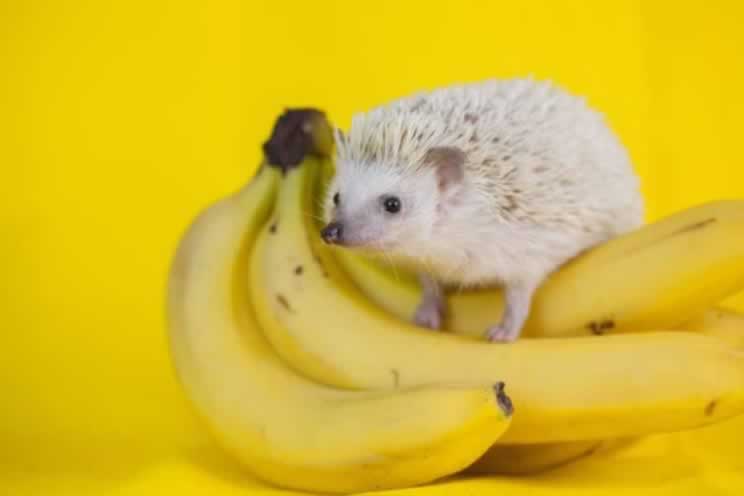
Giving hedgehogs a varied diet is important and fruit can provide additional nutrients to help keep these types of hedgehog healthy. We researched the safest and the healthiest fruits we could provide our hedgehog.
Here’s a list of the 8 fruits hedgehogs can eat safely in moderation:
- apples
- pears
- bananas
- berries (blueberries and raspberries)
- melon
- strawberries
- kiwi fruit
- cherries
Any fruit given to hedgehogs should only be given in moderation as the high natural sugar content of the fruit could end up causing weight gain and diseases like diabetes. Where possible fruit should be washed, any stones removed, the fruit should have the skin removed and should always be cut into small pieces to reduce the risk of choking.
Any fruit should be verified by a vet as being suitable and we have only introduced different fruits after having a conversation with our local vet. Please also check out my list of what foods are safe for hedgehogs.
Let’s take a look at the fruits hedgehogs can eat in detail.
1. Apples
Can hedgehogs eat apples? Hedgehogs can eat apples however these should only be eaten in moderation, as the high sugar content of apples like most fruits could cause hedgehogs to gain weight. Sugar even natural sugar has a high calorific value and in small amounts natural sugar is fine.
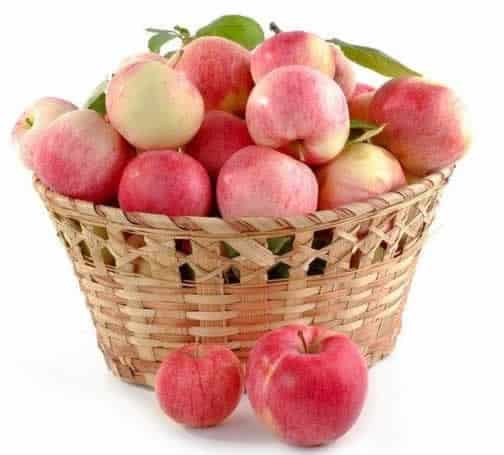
When we give our hedgehog apples, we first remove the skin, as this may be difficult for them to digest and then we cut the apple into small pieces. This helps in ensuring the risk of choking is minimized and he can safely eat the apple.
2. Pears
Can hedgehogs eat pears? Pears can be eaten by hedgehogs as long as care is taken to remove the skin of any pieces given. Along with cutting the pear into smaller pieces to make it easier for a hedgehog to bite into so minimizing on any choking hazard.
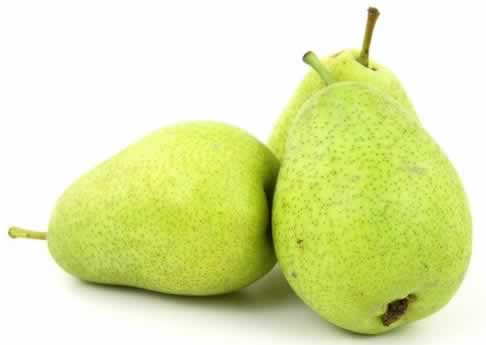
We only give our hedgehog pears in moderation as pears have natural sugar and by giving him too much can lead to obesity and diabetes risk.
3. Bananas
Can hedgehogs eat bananas? Hedgehogs can eat bananas. Small pieces of banana are recommended in moderation only, as like with other fruits they contain high levels of sugar that could cause weight gain and obesity, potentially leading onto diseases like diabetes.
We’re careful not to give him the end of the banana, which is like some sort of seed and maybe toxic or more probable a choking hazard.
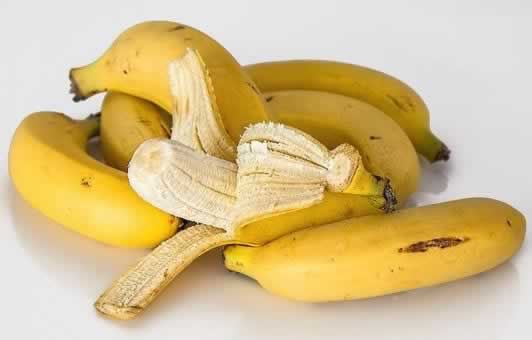
We only give him pieces of banana under our supervision as we realised it can cause false alarms if you leave the banana in his food bowl. Which is exactly what we did when we first started giving him bananas, we left a small piece in his food tray.
The next day when we checked on him, we thought he’d developed some skin disease overnight as his skin on his legs looked like it had gone all crusty.
Fortunately, we realised in double quick time, the little guy’s legs were covered in banana and this had dried up making it look painful but a quick wash later, the banana residue was removed completely and he looked fine. This is why we only ever give him banana under supervision when we take him out of the cage and put him on the fleece mat.
The ripeness of bananas is also important as overripe bananas will have more sugary content and under-ripe bananas will be difficult to digest. In fact, I tend to eat under-ripe bananas as they are a good source of resistant starch acting more as fibre than carbohydrate but am unsure if this would be good for hedgehogs though.
4. Berries
Can hedgehogs eat berries? Hedgehogs can eat certain berries like blueberries and raspberries every now and again but care should be taken to remove the skin first as a precaution to reduce the risk of choking and minimizing any chemicals sprayed onto the blueberries.
Removing the berry skin to reduce the impact of chemicals is probably a habit for us and doesn’t necessarily mean the skin protects the chemicals from being absorbed into the berry.
Removing the skin from blueberries is a tricky task in itself as these types of berries are quite delicate.
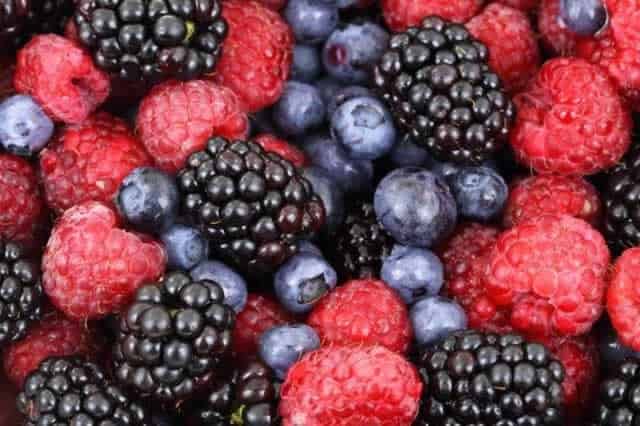
We’ve also given our hedgehog blackberries and raspberries on the rare occasion and he’s enjoyed these too. It is widely believed cranberries are also acceptable for hedgehogs but we haven’t given him any cranberries.
Organic berries
Can hedgehogs eat organic berries? Hedgehogs can eat organic berries like blueberries and raspberries, as being organic means they should have fewer chemicals sprayed onto them but this may not necessarily be the case.
Many supermarkets may have different definitions of what organic means. So we try to use the same supermarket with a high reputation for honesty for any fruit we buy not just for our hedgehog but also for the rest of the family.
Too many chemicals sprayed onto berries to make them last longer by preserving them and stopping them from prematurely going off but these chemicals may do very little harm on humans but that may not be the case with small animals like hedgehogs.
As a small number of chemicals in our larger bodies is probably insignificant but in a smaller body like a hedgehog may mean the chemical is able to exhibit more of its toxic abilities.
Washing berries doesn’t necessarily mean any pesticide residues will be washed off as most of the pesticide ends up seeping into the berry. Neither does peeling other fruits also reduce the pesticides in the fruit.
Wild berries
Can hedgehogs eat wild berries? Wild berries are not a good idea for hedgehogs as they may be poisonous to hedgehogs, they may also be poisonous to humans. In the wild, hedgehogs may eat wild berries as part of their diet but there is no information available with figures on the death rates in the wild from berry poisoning.
Without knowing exactly what the wild berry is, means we could be risking our hedgehog’s life and we simply don’t want to do that.
Wild berries may also contain insects and bacterial microbes that can be harmful to hedgehogs. Insects like mites are not good for hedgehogs and could be passed on from wild berries, causing them health problems.
Dried berries
Can hedgehogs eat dried berries? Dried berries are not a good idea for hedgehogs, as dried berries generally have some form of preservative added to make sure the berry doesn’t decay and these preservatives in themselves can be problematic to hedgehogs. Dried berries can also make it difficult for them to poop, as their stools harden and in worse cases lead to fecal impaction.
By drying berries water is removed and this increases the level of sugar by weight of the berry, so a similar weight of dried berries may contain twice the amount of sugar of a comparable non-dried berry. This excess sugar is not good for hedgehogs over a prolonged period of time as it can be a factor in them becoming diabetic.
Dried berries are quite sticky when eaten and unlike dried cat biscuits which hedgehogs can break into smaller pieces and eat, the stickiness of dried berries can be a problem if they get stuck in their throats.
5. Melon
Can hedgehogs eat melon? Melon is suitable for hedgehogs as long as the melon fed occasionally and care is taken to cut the melon into very small pieces to make it easier to eat. There are different varieties of melon including Water Melon, Honeydew and Cantaloupe suitable for hedgehogs.
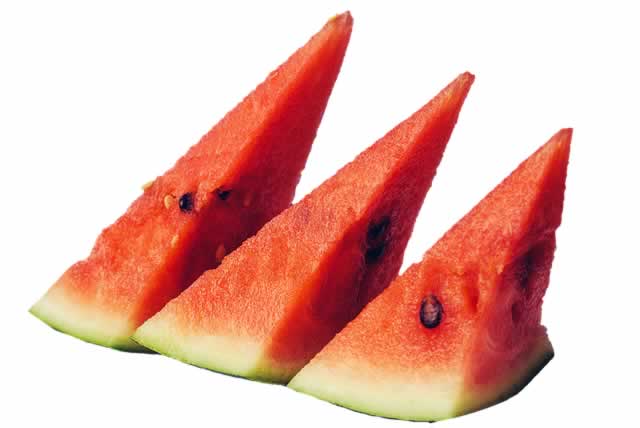
Do keep in mind the natural sugar content of melons makes them sweet so they need to be given as a rare treat.
6. Strawberries
Can hedgehogs eat strawberries? Strawberries are an excellent choice for hedgehogs to eat because they are deceptively sweet, without containing as much natural sugar as other fruits. Hedgehogs can eat more strawberries than other fruits, without them affecting their health, as other fruits could do.
Strawberries are neither a berry or a fruit but are actually part of a flower, the rose family to be exact and provide many health benefits. I decided to check out if they would be beneficial to hedgehogs as part of their diet.
Strawberries contain less natural sugar than some other fruits but taste a lot sweeter and this is good for hedgehogs. As it allows them to eat more strawberries without them affecting their blood glucose levels in the way a fruit like a blueberry would. As the blueberry has more natural sugar but yet doesn’t taste sweeter than the strawberry.
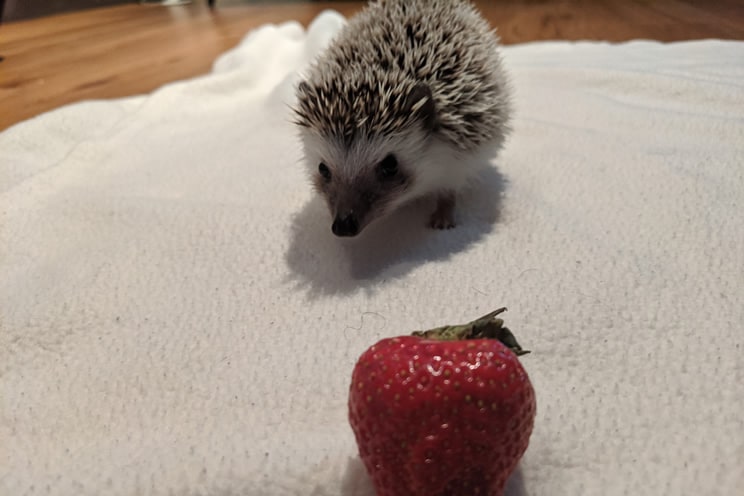
I tend to slice the strawberries and remove the seed covered sides and then slice again into smaller pieces. These pieces are then cut into smaller manageable chunks, thereby reducing any risk of choking.

I avoid strawberries that become mushy, as these have lost their water content. Strawberries with mold on them and those that have darkened are avoided too, as the cells in the strawberry are breaking down and leading to fermentation.
For us humans, the health benefits of strawberries have been widely acclaimed from helping with cholesterol by increasing good HDL cholesterol, protecting cardio-vascular health particularly the heart including helping lower blood pressure to being able to provide some protection against cancer.
I would assume the same holds true for hedgehogs and their health as they would also be in line for the health benefits strawberries provide. Strawberries are a good source of essential vitamins, particularly high levels of vitamin C, they also contain polyphenols, which are antioxidants, helping to neutralize free radicals in the body that could otherwise do harm.
On the whole, strawberries are primarily composed of water, around 90%, providing an excellent source of hydration for hedgehogs. The rest of the strawberry is composed of carbohydrates, around 8%, with less than 1% protein and even less fat, around 0.4%.
7. Cherries
Cherries can be eaten by hedgehogs as long as they are pitted, that is the stone removed, along with the skin being removed and then they are cut into small pieces. Cherries should initially be given in small amounts and if the hedgehog shows no adverse reaction to them, cherries should only then be given in moderation.
We haven’t given our hedgehog cherries but we would speak to our vet first to see if they were fine for our hedgehog to eat. Many hedgehog websites across the internet advocate cherries being safe for hedgehogs.
If we gave our hedgehog cherries we would wash them, remove their skin, make sure the stone of the cherry is removed and cut the cherry into smaller pieces first.
8. Kiwi fruit
Hedgehogs can eat small pieces of kiwi fruit in moderation. Care must be taken to remove any skin and the pieces need to be small enough to avoid any choking risk. A small amount should initially be given to see if there are any adverse reactions.
We haven’t tried kiwi fruit with our hedgehog as yet but many hedgehog websites across the internet advocate kiwi fruit as being safe for hedgehogs.
Can hedgehogs eat grapes?
Hedgehogs cannot eat grapes. Grapes can be toxic to hedgehogs. They can cause damage to their organs including renal (kidney) and liver damage. Watch out for videos or articles which says it’s fine or it’s fine in moderation, this is misinformation.
We ignore the information portrayed in videos and articles advocating grapes are safe as this is not true and and we play it safe by not giving our hedgehog grapes.
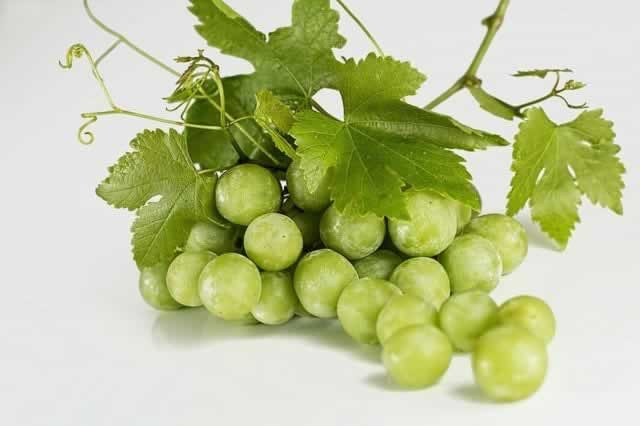
Can hedgehogs eat oranges?
Hedgehogs cannot eat oranges. Citrus fruits like oranges, limes and lemons can be acidic and therefore not suitable for hedgehogs. As the mild acidity can lead to digestive issues it’s not a good idea and over a prolonged period, it could do damage to the hedgehog’s digestive tract. The discomfort and pain citrus fruits acidity can cause to hedgehogs is not worth putting them through.
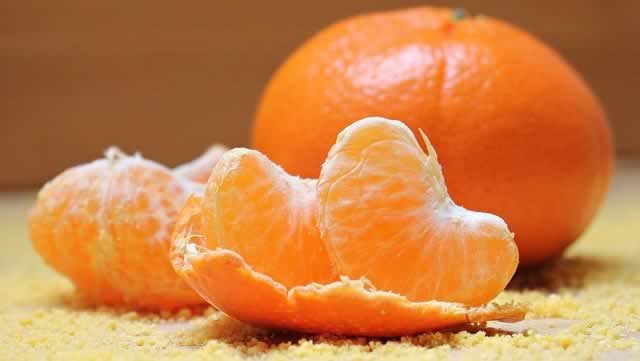
Can hedgehogs eat avocados?
Hedgehogs cannot eat avocados. There are many sources that advocate eating Avocados as safe for hedgehogs. However, this is not true as the underyling damage avocados cause may not be visible until the internal damage caused, starts to show signs as an illness.
I’ve seen some YouTube videos where people have said this but believe me, I would never feed a hedgehog Avocados as the risk is too great. I’d rather be safe than sorry and avoid Avocados completely.
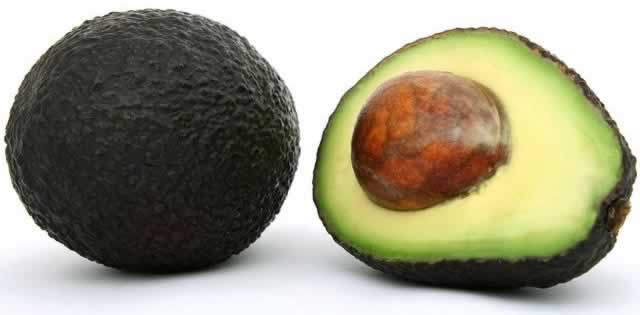
Can hedgehogs eat raisins?
Hedgehogs cannot eat raisins. Raisins can be toxic to hedgehogs. They can cause damage to their organs including renal (kidney) and liver damage. Raisins are also a choking hazard and any preservatives used to keep them edible for longer, might not agree with hedgehogs.
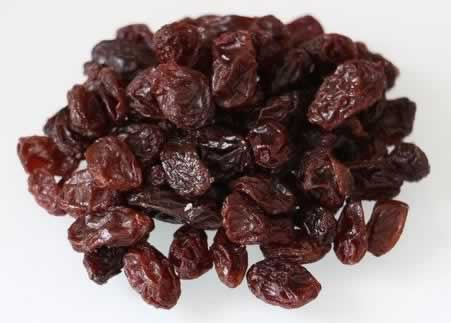
Raisins should be avoided at all costs, as they are quite sticky when eaten, so there is a risk of raisins ending up getting stuck in the hedgehog’s mouth or throat
Can hedgehogs eat pineapple?
Hedgehogs cannot eat pineapples as pineapples are quite acidic resulting in potential digestive issues for hedgehogs. Pineapples are also high in sugar and could result in pushing hedgehogs into obesity and diabetes.
Can hedgehogs eat plums?
Hedgehogs can eat plums in moderation. Care should be taken to remove the skin, as the skin itself could be a choking hazard. The plums need to be pitted and cut into very small pieces for the hedgehog to eat.
We haven’t given our hedgehog plums but we would speak to our vet first to see if they were fine for our hedgehog to eat. Many hedgehog websites across the internet advocate plums being safe for hedgehogs.
If we did decide to give our hedgehog plums we would wash them, remove their skin and cut them into smaller pieces first.
Can hedgehogs eat mangos?
Hedgehogs can eat mangos in moderation. As mangos are very sweet, thereby contain a lot of natural sugar, mangoes should only be given in moderation. With the mango cut into very small pieces and the skin removed, to reduce the risk of choking.
We haven’t given our hedgehog mangoes but we would speak to our vet first to see if they were fine for our hedgehog to eat. Many hedgehog websites across the internet advocate mangoes being safe for hedgehogs.
If we gave our hedgehog mangoes we would wash them, remove their skin and cut them into smaller pieces first.
Can hedgehogs eat peaches?
Hedgehogs can eat small pieces of peaches, where the skin has been removed and there is no risk from eating the stone. Hedgehogs should be given an initial small piece of peach, to check it’s suitability and if there are no outward signs like diarrhea, then more can be given but only in moderation.
We haven’t given our hedgehog peaches but we would speak to our vet first to see if they were fine for our hedgehog to eat. Many hedgehog websites across the internet advocate peaches being safe for hedgehogs.
If we gave our hedgehog peaches we would wash them, remove their skin, remove any stones and cut the peaches into smaller pieces first.
Can hedgehogs eat papaya?
Hedgehogs can eat small pieces of ripened papaya, where the skin has been removed and there is no risk from eating the stone. Unripe papaya contains large amounts of latex which can lead to kidney damage. Hedgehogs should be given an initial small piece of papaya, to check it’s suitability and if there are no outward signs like diarrhea, then more can be given but only in moderation.
We haven’t given our hedgehog papaya fruit but we would speak to our vet first to see if they were fine for our hedgehog to eat. Many hedgehog websites across the internet advocate papaya being safe for hedgehogs.
If we gave our hedgehog papaya we would wash them, remove their skin and cut them into smaller pieces first.
Can hedgehogs eat dried fruit?
Hedgehogs cannot eat dried fruit as the dried fruit needs to have some form of preservative added to make sure the fruit doesn’t decay naturally and it’s these preservatives themselves which can be problematic to hedgehogs.
These preservatives could be toxic and overtime the toxicity levels of these preservatives may build up in hedgehogs causing health issues. We tend to avoid dried fruits completely.
By drying fruit, the water content is removed completely and this increases the level of sugar by weight of the fruit, so a similar weight of dried fruit may contain twice the amount of sugar of a comparable non-dried fruit by weight.
This in effect is concentrating the sugar content by drying the fruit and this excess sugar is not good for hedgehogs. Over a period of time, the excess sugar can become a factor in them becoming obese and potentially diabetic.
Dried fruit is quite sticky when eaten as it combines with the hedgehog’s saliva. Unlike dried cat biscuits which hedgehogs can break into smaller pieces and eat, the stickiness of dried fruit can be a problem if the stick fruit gets stuck especially in their throats.
Hedgehog Good fruit list
I’ve created a fruit list of what we give our hedgehog, with the fruits listed not having caused any issues with our hedgehog. It’s important to understand what is good for our hedgehog may not be good for yours, so when you do introduce any new fruit or food item, you do it under the supervision and make absolutely sure it isn’t detrimental to the hedgehog’s health.
For example, if you give your hedgehog small pieces of a fruit and notice their poop isn’t dried out solid pieces but is more diarrhoea like then remove the food in question and do not introduce anything else that’s different from their usual diet until their diarrhoea has stopped and medical advice from a vet has been sought.
Remember to also take precautions against any choking hazard by trying to cut the food into smaller digestible pieces. Try using organic fruit and washing the fruit in just water, along with peeling any skin before giving it to hedgehogs.
- Apples
- Pears
- Bananas
- Blueberries
- Strawberries
- WaterMelon
Hedgehog Bad fruit list
I’ve created a fruit list of what we won’t give our hedgehog, with the fruits listed is what we think is toxic and damaging to the health of not only our hedgehog but any hedgehog.
It is highly advisable to seek the advice of your pet’s vet to make sure any fruit you are thinking of giving your hedgehog is safe.
- Grapes
- Raisins
- Avocados
- Pineapple
- Oranges
- Lemons
- Limes
High pesticide fruits
Every year the Environmental Working Group (EWG)[1] releases a list of the fruits and vegetables with the most pesticides. I’ve listed some of the fruits suitable for hedgehogs in the order they appear on the EWG list below:
- Strawberries
- Apples
- Peaches
- Cherries
- Pears
It’s important to try to source organic varieties of these fruits as the pesticide content should be lower. Whilst washing or peeling might not necessarily get rid of all the pesticides, this may help in reducing the level of pesticides.
Low pesticide fruits
The Environmental Working Group (EWG)[2] also produce a list of what it considers lower pesticide fruit and vegetables. I’ve listed some of the fruit suitable for hedgehogs in the order they appear on the EWG list below:
- Papaya*
- Kiwi
- Cantaloupe
- Honeydew Melon
Again it’s still wise to try and source an organic variety of these vegetables and wash them thoroughly before serving them.
*In the USA a small amount of papaya is made from genetically modified seeds. EWG’s advice here is to try to buy the organic varieties.
Conclusion
My daughter spent a lot of time researching what fruit was good for hedgehogs and what fruit should be avoided as it could be toxic to hedgehogs. Hopefully with the 5 safe foods, it will be easier to give some fruit goodness without worrying about any side effects.
Related Questions
What vegetables can hedgehogs eat? We normally give our hedgehog small pieces of cooked carrot. Other cooked vegetables such as broccoli, spinach and asparagus can also be a good choice for hedgehogs.
What size cage does an hedgehog need? At a minimum, a cage which 3 feet x 2 feet (90cm x 60cm) is recommended but ideally something bigger at 4-foot x 2 foot (120cm x 60cm) is a better choice.

